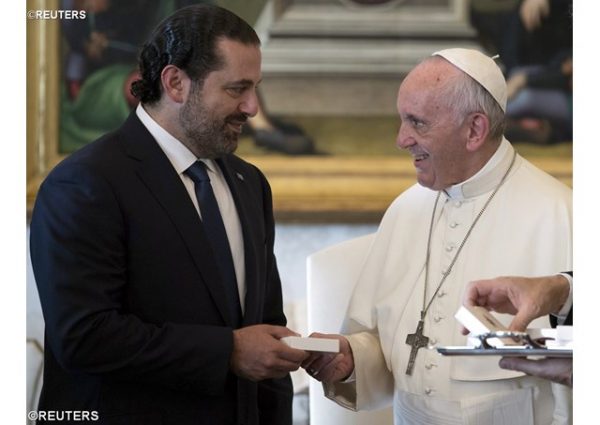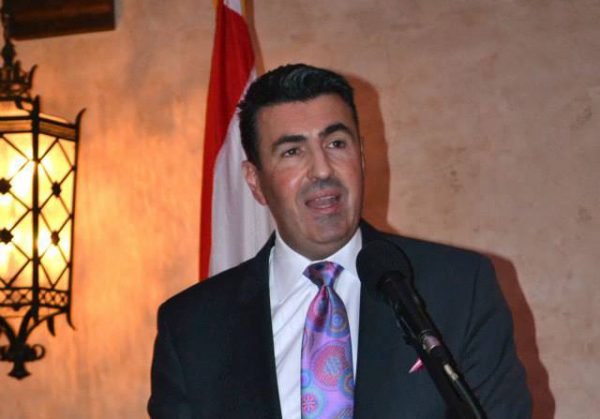
In an infrequent exercise of his diplomatic veto, Pope Francis has reportedly rejected the recently named Lebanese Ambassador to the Holy See, allegedly on the grounds that he is a member of the Masonic Lodge.
According to the Italian daily, Il Messaggero, Pope Francis informed Lebanese PM Saad Hariri during his visit to the Vatican last week that Johnny Ibrahim, who currently serves as Lebanon’s general consul in Los Angeles, was an unacceptable candidate for Ambassador to the Holy See, given his affiliation with Freemasonry.
The report states that Mr. Hariri was surprised by the refusal but promised to find another candidate. Ibrahim has acknowledged that he has had contacts with French freemasonry but claims that he has never been a member.
This past summer, word got out that the government of Lebanon had named Mr. Ibrahim as the country’s new ambassador to the Vatican. The announcement occasioned congratulations from certain prelates, such as Archbishop Moushegh Mardirossian of the Armenian Apostolic Church, who sent a letter praising Ibrahim, stating that he was “truly deserving of this great honor.”

In 2015, the Holy See reportedly rejected the appointment by French President François Hollande of an openly gay Catholic man as French Ambassador to the Holy See. Laurent Stefanini, Hollande’s chief of protocol, received the nomination to serve as ambassador to the Vatican in January, 2015, but nine months later the Vatican had still not accepted his credentials—a procedure that normally takes just weeks. France eventually gave up on the appointment and instead named Philippe Zeller to the post, a move that was immediately embraced by the Vatican.
In 2009, Vatican sources said that President Barack Obama’s choice for the diplomatic position, Caroline Kennedy, had been quietly excluded by the Vatican because of her support for abortion, according to the Italian newspaper Il Giornale.
Obama was allegedly seeking to reward John F. Kennedy’s daughter with the nomination, but her situation as a pro-choice Catholic disqualified her for the position and the appointment never came to pass.
At the time, Raymond Flynn, a former U.S. ambassador to the Holy See, said that Ms. Kennedy would be a poor choice for the job.
“It’s imperative, it’s essential that the person who represents us to the Holy See be a person who has pro-life values,” he said. “I hope the President doesn’t make that mistake.”
Shortly afterward, Vatican spokesman Father Federico Lombardi said there was “no truth” to the reports claiming the Vatican has rejected several candidates for U.S. ambassador to the Holy See because of their support for abortion.
The Catholic Church has a history of hostility toward Freemasonry, and forbade Catholics from become members in Masonic organizations and other secret societies as far back as 1738. Up until 1983, Catholics who publicly associated with a Masonic lodge were automatically excommunicated.
Even today, the Church continues to bar Catholics from membership in Freemasonrybecause of “the basic irreconcilability between the principles of Freemasonry and those of the Christian faith.”
Membership in Masonic associations, states a Vatican statement from 1985, “remains forbidden by the Church, and the faithful who enrolls in them are in a state of grave sin and may not receive Holy Communion.”
BREITBART

Leave a Reply
You must be logged in to post a comment.